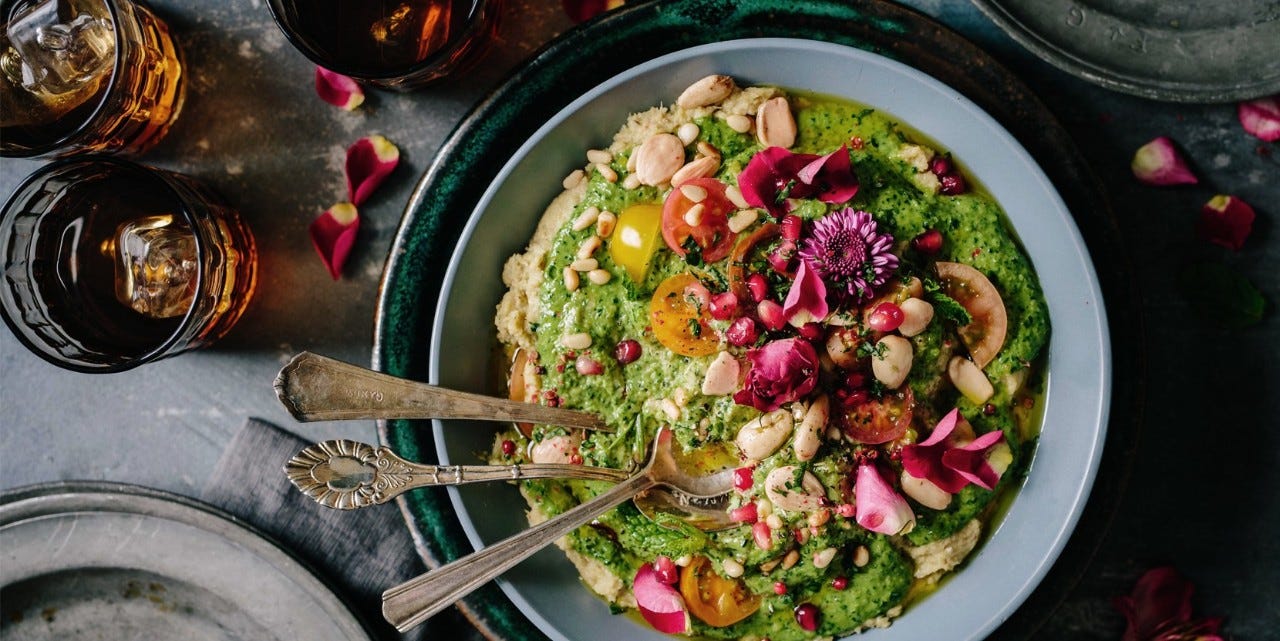Vegan: healthy or just a fad?
Celebrities and athletes are leading the way: eating vegan is hip. But is veganism also healthy? What do you need to know if you give up meat and dairy products?

A man mountain prepares to break the world record. He lifts 555 kg and wobbles a few steps to the finish line. You’ve done it! “Vegan power”, he shouts proudly into the camera.
The weightlifter, who featured in the Netflix documentary “Game Changer”, has eaten a vegan diet for years. The film uses the profiles of top vegan athletes, such as Arnold Schwarzenegger, Jackie Chan and Lewis Hamilton, to put paid to the cliché that “strong men eat meat”.
But what do the facts say? Is eating a vegan diet really healthier? And can athletes perform on a purely vegetable diet?
What is veganism? A definition
A vegetarian diet takes various forms: Lacto-ovo vegetarians eat vegetables, eggs and dairy products such as milk, cheese and yoghurt. Lacto vegetarians eat dairy products, but not eggs, while ovo vegetarians, conversely, eat eggs but no dairy products.
Vegans live exclusively on plant products and swear off all foods that contain animal products or additives, such as honey, for example.
But vegans go even further: products and clothes containing animal products, such as leather, fur and wool, are also taboo. Cosmetics should also be free of animal additives, such as beeswax in mascara, and be developed without animal testing.
Why go vegan?
Most vegans refrain from using animal products for the sake of animal welfare and the environment. The WWF calculates that the ecological footprint of an average Swiss person’s diet would be reduced by 24% if they switched to a vegetarian diet. This figure increases to 40% if you follow a vegan diet.
Another reason for eating a purely vegetable diet is health. Advocates of veganism claim that a vegan diet lowers the risk of obesity and therefore of developing diabetes, cardiovascular disease and various types of cancer, pointing to various studies concerning the prevention and treatment of obesity and related diseases.
Is a vegan diet healthy?
In fact, it has been scientifically proven that unsaturated fatty acids, which are found in nuts, seeds and vegetable oils, dietary fibres and lots of vegetables and fruit, have a positive health effect.
Animal fats and red meat, by contrast, increase the risk of type II diabetes and cardiovascular disease. Studies have shown, for example, that after four weeks of giving up meat, people’s blood fat and blood pressure were lower than before.
However, it hasn’t yet been scientifically proven whether a vegan diet is healthier in the long term than a balanced diet containing eggs, dairy products and fish. For example, the Swiss Federal Commission for Nutrition (EEK) concluded in an overview study conducted in 2018 that, according to the latest European studies, a long-term vegan diet doesn’t have a clear positive effect on health. And there is a need for further informative (long-term) studies on the topic.
Is a vegan diet unhealthy?
If you follow a vegan diet and plan what you eat properly, you can cover all your dietary requirements without animal products. The EEK’s report came to the same conclusion. According to the Vegan Society Switzerland and the interest group Swissveg, it is important to keep an eye on three components in particular:
- Vitamin B12: This essential vitamin isn’t found in plants, so vegans have to take it in the form of tablets or fortified foods.
- Iron: As the human body uses iron from plant sources less efficiently than from animal sources, the Swiss vegan society recommends eating twice as much iron – for example, by eating pulses, seeds and nuts, whole grains or spinach.
- Calcium: Calcium is another of the nutrients that vegans have to keep an eye on. It is found naturally in nuts, green leafy vegetables, pulses, tofu, mineral water and enriched plant-based milk.
But being vegan doesn’t automatically mean you’re healthy. You need to regularly eat fresh vegetables, fruit, pulses, nuts and wholegrain products and consume only small amounts of processed vegetarian food. This is because meat replacement products often have a very one-sided composition and contain a lot of carbohydrates and fats, warns the head of the EEK report in an interview with the online portal Watson.
Vegans and sport
Sportspeople need a lot of energy – and sufficient protein. However, according to the EEK, plant proteins are less usable than animal proteins and their amino acid content is limited.
This means that vegans should consume more protein than people who also consume animal products. The Swiss Vegan Society recommends a daily protein intake of 1 g/kg body weight.
A vegan diet containing a targeted and varied mix of plant-based proteins such as beans, lentils, tofu, soy milk and cereals, in combination with a sufficient energy supply, will cover your protein requirements.


